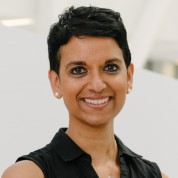PS 1.3
The Role of Family, Community, and Supportive Environments Amid Demographic Shifts
29
Jan
Demographic shifts—including population aging, changing household structures, declining fertility, and increased urbanization—are reshaping the foundational roles of family, community, and care environments across societies. These transitions pose profound implications for social cohesion, caregiving responsibilities, intergenerational relationships, and the design of health and social services.
Traditionally, families and communities have served as the primary sources of emotional, physical, and financial support throughout the life course. However, modern dynamics such as smaller family sizes, migration, and rising dependency ratios are straining these informal support systems. Meanwhile, communities are increasingly called upon to create inclusive, age-friendly, and resilient environments that promote well-being and enable people of all ages to thrive.
This session explores how families, communities, and the broader social environment can be strengthened and reimagined to support population health and social equity amid demographic change
This session explores innovative, inclusive, and equity-driven approaches that strengthen the role of families, communities, and supportive environments across the life course. The session highlights diverse models from mental health systems, palliative care, digital health, and age-friendly design — emphasizing how demographic transitions can be met with compassionate, community-rooted strategies.
PANELISTS
Biosketch
Dinesh Arora
Emi Kiyota
Issarang Nuchprayoon
Katie Malbon
Praseedha Janakiram
Wycliffe Waweru
Session Materials
Parallel Session 1.3 detail_22-July-2025.docx







